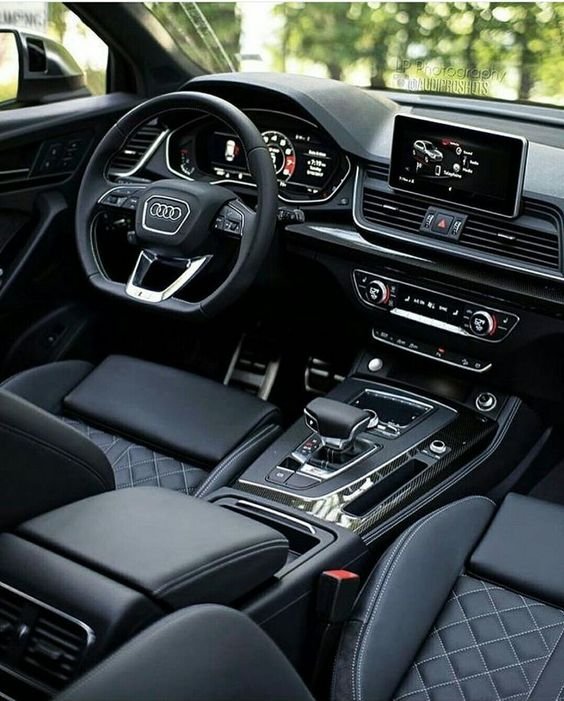
Buying a car is one of the most significant financial decisions many people make. It’s not just about finding the right vehicle but also navigating through various complexities associated with the purchase process. Car dealers, often perceived as intermediaries facilitating these transactions, have their interests and tactics. Understanding these tactics is crucial for consumers to ensure they get the best deal possible. This article delves into the various things car dealers may try to hide when you buy a car and offers tips on how to protect yourself.
Hidden Costs and Fees
One of the most common tactics car dealers use is to hide additional costs and fees. These can significantly increase the overall price of the vehicle.
Dealer Preparation Fees: Dealers often charge fees for preparing the vehicle for sale, which can include cleaning and minor adjustments. These fees can sometimes be inflated and are often negotiable.
Documentation Fees: While some documentation fees are standard, covering the cost of processing paperwork, dealers may inflate these fees to boost their profit margins.
Extended Warranties and Add-Ons: Dealers frequently try to sell extended warranties and add-ons like paint protection, rust-proofing, or window etching. These add-ons can be overpriced and may not always provide the value promised.
Financing Fees: If you’re financing your car through the dealer, they may include hidden fees in the financing agreement. It’s essential to review the loan terms carefully and understand all the associated costs.
The True Vehicle History
When buying a used car, the vehicle’s history is paramount. Dealers may attempt to hide or downplay certain aspects of the car’s past to make it more appealing.
Accident History: Dealers may not disclose if the car has been in an accident. Even if minor, accidents can impact the car’s value and performance. Always request a vehicle history report from services like Carfax or AutoCheck.
Title Issues: Title issues, such as salvage or rebuilt titles, can significantly affect a vehicle’s value and safety. Ensure the title is clean and verify it through a third-party service.
Previous Usage: Cars previously used as rentals, taxis, or fleet vehicles may have higher wear and tear. Dealers might not volunteer this information unless specifically asked.
Odometer Fraud: Some unscrupulous dealers might tamper with the odometer to display a lower mileage. Cross-check the vehicle’s mileage with its service records and history report.
Mechanical and Cosmetic Issues
Dealers often go to great lengths to present a car in the best possible light, which sometimes means hiding its flaws.
Temporary Fixes: Dealers might perform temporary fixes to hide mechanical issues. For example, using thicker oil to mask engine noise or additives to stop leaks temporarily.
Undisclosed Repairs: If a car has undergone significant repairs, dealers may not always disclose this information. Always have a trusted mechanic inspect the vehicle before purchase.
Cosmetic Flaws: Minor dents, scratches, or paint imperfections can be hidden with temporary fixes. Inspect the car in good lighting and from multiple angles to spot any issues.
Recalls: Ensure the vehicle has no outstanding recalls. Dealers are supposed to fix these before selling a car, but some may overlook or hide this information.
Financing Tactics
Financing a car through a dealership can be convenient, but it’s essential to be aware of potential pitfalls.
Interest Rate Markups: Dealers often mark up the interest rate offered by lenders to make extra profit. Always shop around for financing options before settling for dealer financing.
Variable Interest Rates: Be cautious of financing agreements with variable interest rates, as they can lead to higher payments over time. Always clarify the terms of the loan.
Payment Focus: Dealers might focus on the monthly payment amount rather than the total cost of the vehicle. This tactic can hide the overall cost and lead to longer loan terms and higher interest payments.
Prepayment Penalties: Some financing agreements include prepayment penalties, which charge you for paying off the loan early. Ensure you understand all the terms before signing.
Trade-In Manipulation
If you’re trading in your old vehicle, dealers have tactics to maximize their profit at your expense.
Lowball Offers: Dealers might undervalue your trade-in to increase their profit margin. Research your car’s trade-in value using resources like Kelley Blue Book or Edmunds before negotiating.
Overallowance: Sometimes, dealers might offer a higher trade-in value but adjust the price of the new car to make up the difference. Ensure the overall deal is fair by comparing both aspects separately.
Negative Equity: If you owe more on your current car than its trade-in value (negative equity), dealers might roll this amount into your new loan, leading to higher payments. Be aware of your loan balance and negotiate accordingly.
Misleading Advertisements
Dealers use various advertising tactics to attract customers, but these ads can sometimes be misleading.
Limited-Time Offers: Ads promoting limited-time offers or discounts can create a sense of urgency, pressuring you to make a quick decision. Take your time to research and compare offers.
Bait-and-Switch: Some dealers advertise a particular vehicle at an attractive price to lure customers in but then claim the car is no longer available and try to sell a different, more expensive model.
Fine Print: Always read the fine print in advertisements. There may be conditions or restrictions that aren’t immediately apparent.
Misleading Promotions: Promotions like “zero down payment” or “no interest for the first year” can be misleading. Understand the terms and conditions thoroughly to avoid surprises later.
Understanding Your Rights
As a car buyer, it’s crucial to understand your rights to protect yourself from unscrupulous practices.
Lemon Laws: Most states have lemon laws that protect buyers of defective vehicles. Familiarize yourself with these laws to know your rights if you encounter issues with your car.
Cooling-Off Period: Contrary to popular belief, there is no federal cooling-off period for car purchases. Once you sign the contract, it’s typically binding. Ensure you’re confident in your decision before finalizing the purchase.
Consumer Protection Laws: Various consumer protection laws can help you if you feel misled or deceived. The Federal Trade Commission (FTC) provides resources and assistance for car buyers.
Warranty Rights: Understand the warranty coverage for your vehicle, including what is covered and for how long. Ensure you get all warranty information in writing.
Tips for a Successful Car Purchase
To protect yourself from potential pitfalls and ensure a successful car purchase, consider the following tips:
Do Your Research: Before visiting a dealership, research the car models you’re interested in, their prices, and their common issues. Use resources like Kelley Blue Book, Edmunds, and Consumer Reports.
Get Pre-Approved for Financing: Secure financing from your bank or credit union before visiting the dealership. This gives you a benchmark to compare against the dealer’s financing offer.
Inspect the Vehicle: Thoroughly inspect the car, both inside and out. Check for any signs of damage, wear and tear, or temporary fixes. If you’re not confident in your inspection skills, bring a trusted mechanic.
Request a Vehicle History Report: Always ask for a vehicle history report to check for accidents, title issues, and previous usage. Services like Carfax and AutoCheck can provide comprehensive reports.
Test Drive the Car: Test drive the vehicle to assess its performance, handling, and comfort. Pay attention to any unusual noises or behaviors.
Negotiate the Price: Don’t be afraid to negotiate the price. Use your research to support your arguments and be prepared to walk away if the dealer isn’t willing to meet your terms.
Review the Contract Carefully: Before signing any paperwork, review the contract carefully. Ensure all terms are clearly outlined, including the price, financing terms, and any additional fees.
Avoid Impulse Decisions: Take your time to make a decision. Avoid making impulse purchases based on high-pressure sales tactics or limited-time offers.
Buying a car can be a complex and sometimes overwhelming process. Car dealers, while necessary intermediaries, often use tactics to maximize their profits, sometimes at the expense of the buyer. By understanding these tactics and knowing what to watch for, you can protect yourself and ensure a fair deal. Remember to do your research, inspect the vehicle thoroughly, and negotiate effectively. With these tips in mind, you’ll be well-equipped to navigate the car-buying process and drive away with confidence.
ALSO READ: BMW Latest Offerings in India: A Detailed Overview







